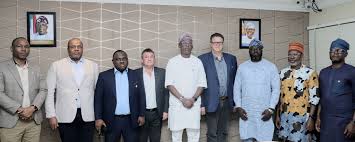In a bold move to strengthen local manufacturing and align government spending with national development priorities, the Bureau of Public Procurement (BPP) has signed a Memorandum of Understanding (MoU) with the National Agency for Science and Engineering Infrastructure (NASENI). The agreement aims to institutionalize a structured framework that places Made-in-Nigeria products at the centre of government procurement processes.
The MoU, signed by BPP Director-General Dr. Adebowale Adedokun and NASENI Executive Vice Chairman Khalil Suleiman Halilu, seeks to bridge the gap between local production and federal procurement. It represents a major step towards realising the Nigeria First Policy by ensuring that innovations developed within the country are given first consideration in procurement by Ministries, Departments, and Agencies (MDAs).
According to Adedokun, the agreement is not an act of protectionism but a demonstration of patriotism anchored in the quality of Nigerian products. He noted that NASENI’s offerings ranging from tractors and tablets to drones and solar backup systems are already certified by national regulatory bodies such as the Standards Organisation of Nigeria (SON) and NAFDAC.
“We are institutionalising a framework that makes local options not just preferable but the default,” Adedokun said. “Our job is to ensure these standards are rewarded with access, and that MDAs no longer look outside when the best is being made inside.”
A key component of the agreement involves integrating NASENI’s product catalogue into the Nigeria Open Contracting Portal (NOCOPO), thereby making the agency’s innovations visible and trackable across all MDAs. This move, Adedokun explained, will enhance procurement transparency and efficiency.
Between January and June this year, NOCOPO’s enhanced price intelligence saved the country over N173 billion, $155 million, and €1.7 million—real savings that can be redirected to education, healthcare, and small business support.
Adedokun also highlighted that the BPP’s revised procurement thresholds—N5 billion for goods and N10 billion for works will allow MDAs to respond faster to urgent needs while maintaining strong audit systems. He noted that ongoing collaborations with the EFCC and ICPC have already led to significant recoveries, and the MoU with NASENI will further shield the procurement system from abuse.
To ensure smooth implementation, a Technical Working Committee (TWC) will be established by both agencies. The committee will align production timelines with procurement cycles, monitor results, and resolve bottlenecks.
Addressing MDAs and the public, Adedokun stressed that prioritising local products is not just policy compliance but an economic imperative. “Let us build a procurement system where every naira spent strengthens our factories, empowers our engineers, and affirms our belief in Nigeria,” he said.
On his part, NASENI’s chief executive Halilu said the agency has already developed more than 14 market-ready products and is eager to scale their distribution across the country. He described the MoU as a key enabler for industrialisation and job creation, especially amid global economic shifts and rising trade protectionism.
“We look forward to assembling more locally made items and promoting the industrialisation of the country—with the support of BPP, of course,” he added.
The partnership between BPP and NASENI marks a significant milestone in Nigeria’s journey toward self-reliance, technology adoption, and inclusive economic growth. It underscores the critical role of public procurement estimated to account for nearly a third of national expenditure as a powerful tool for development.










